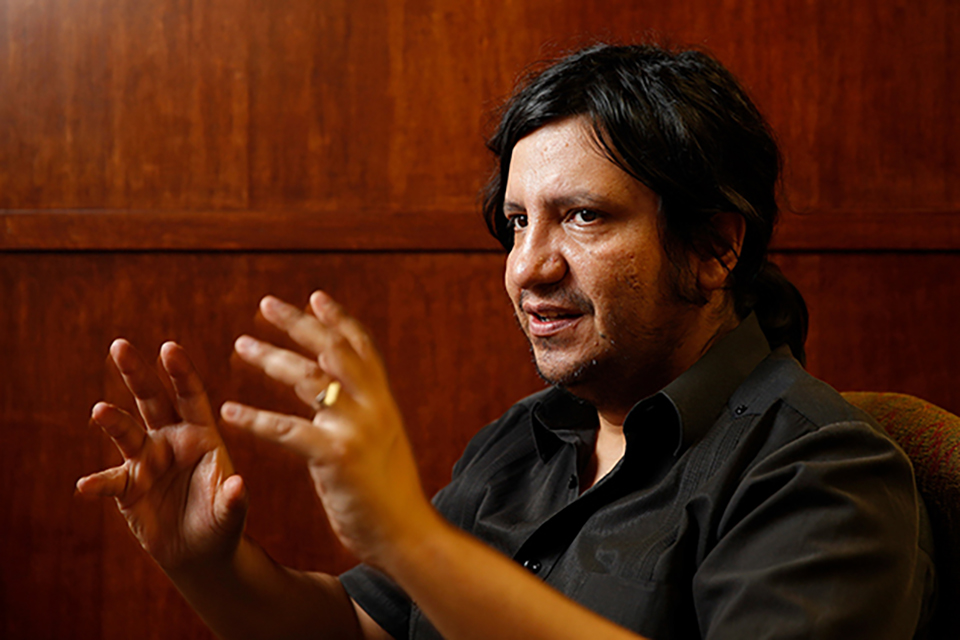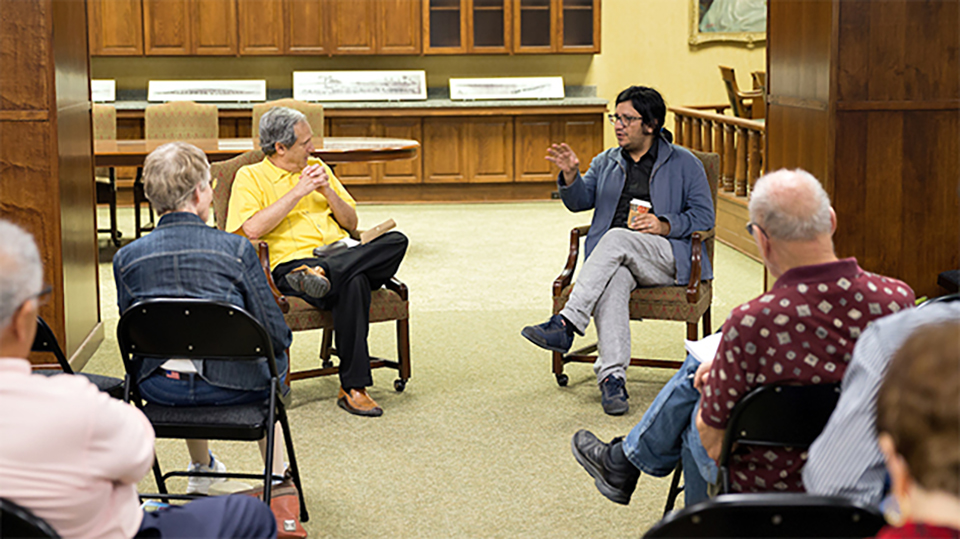By Amanda Taylor
EDINBURG, TEXAS – For Chilean author Alejandro Zambra, there are multiple ways to get home. The feeling of “home” is up to the interpreter – the reader.
“Literature gives you the possibility of talking about many different things at the same time,” Zambra said. “That idea of facing the past – it’s not that you will solve it by writing a book. A book is about what happens when you try to write a book.”
Zambra’s latest book, Ways of Going Home, is a self-reflexive vehicle about dealing with the past, exploring heritage and the idea of belonging.
Ways of Going Home, the author’s meta-literary descent into the dictatorship of Chilean General Augusto Pinochet, weaves in different narrators (fictional and actual) as the story entwines elements of remembrance and layers of time.
The novel was selected as this year’s NEA Big Read book for discussion during FESTIBA’s Big Read keynote panel discussion, led by UTRGV’s Dr. Steven Schneider on Thursday afternoon, with Zambra discussing the elements of prose and genre during an open panel discussion in the Shary Room of the UTRGV Edinburg Library.
The NEA Big Read is a program funded by a grant from the National Endowment for the Arts in partnership with Arts Midwest. Schneider is principal investigator of the grant.
The book is Zambra’s fourth publication, having also penned My Documents, The Private Lives of Trees and Bonsai. His literary works have been translated into multiple languages and have garnered international praise.
Bonsai was awarded the Chilean Critics Award for best novel of the year in 2006, and it adapted to a film of the same name in 2011. Zambra was dubbed one of Granta’s Best Young Spanish-Language Novelists in 2010, and his short stories and articles have appeared in prestigious publications like The New Yorker, The Paris Review, Vice and Tin House.
“I think all books are about belonging, in some way or another,” the award-winning writer said. “Even if that is not wanting to belong to something – such as a community or country.”
Born in Santiago, Chile, in 1975, Zambra grew up in a time of social and political upheaval. The Chilean coup of the socialist regime of Salvador Allende in 1973 set the stage for Zambra’s adolescence, which he looks back on as a distilled work of fiction.
“I grew up in this dictatorship, but childhood is always fiction, in a way,” he said. “You don’t remember clearly how your own life was when you were 5 years old because it’s hard to remember. You have to rely on the adults who tell you your past. And you believe them.”
Ways of Going Home, Zambra says, is a representation of how his generation dealt with growing up in a dictatorship.
“This is a book that happens more when you think about facts than a book about facts,” he said. “It’s about trying to go farther into your memories and trying to deal with them. About innocence and guilt, and how both things are not exact.”
He attributed much of post-modern style to the geographical influencers in poetry.
Aside from prominent surrealist poet Pablo Neruda, whom Zambra said was “part of the DNA of Chilean poetry,” he spoke of the influences of politically charged poetry from legendary writers like Nicanor Parra and Gabriela Mistral.
“If you were a kid, at 10 years old, found writing poetry in a corner, you’d be bullied and called ‘Neruda,’” Zambra said. “Chilean poetry is like a myth, but it is very respected poetry. There’s this idea that poetry is fruitful and not useless; it’s something.”
ABOUT FESTIBA
FESTIBA was created in 2006 to promote literacy and to foster a culture that appreciates and celebrates the cultural arts. Please click here to go to the FESTIBA home page or visit this page for information http://www.utrgv.edu/festiba/index.htm
ABOUT UTRGV
The University of Texas Rio Grande Valley (UTRGV) was created by the Texas Legislature in 2013 as the first major public university of the 21st century in Texas. This transformative initiative provided the opportunity to expand educational opportunities in the Rio Grande Valley, including a new School of Medicine and a School of Podiatry, and made it possible for residents of the region to benefit from the Permanent University Fund – a public endowment contributing support to the University of Texas System and other institutions.
UTRGV has campuses and off-campus research and teaching sites throughout the Rio Grande Valley including Brownsville (formerly The University of Texas at Brownsville campus), Edinburg (formerly The University of Texas-Pan American campus), Harlingen, Weslaco, McAllen, Port Isabel, Rio Grande City and South Padre Island. UTRGV, a comprehensive academic institution, enrolled its first class in the fall of 2015; the School of Medicine welcomed its first class in the summer of 2016, and the School of Podiatric Medicine in the fall of 2022.


